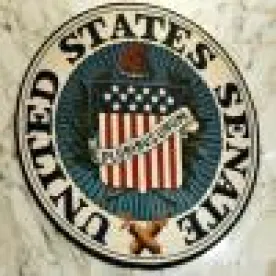Today, the Senate approved H.R. 266, combining an expansion of the Paycheck Protection Program and allocating another $100B for health care providers and others for COVID-19 related services and testing. The House is expected to vote on the bill this Thursday.
Paycheck Protection
The expansion of the Paycheck Protection Program (PPP) allows for an additional $310 billion in available funds, increasing the total amount under the PPP from $349 billion to $659 billion. Of the additional amounts available for loans, $30 billion will be set aside for loans made by Insured Depository Institutions and Credit Unions that have assets between $10 billion and $50 billion and $30 billion will be set aside for loans made by Community Financial Institutions, Small Insured Depository Institutions, and Credit Unions with assets less than $10 billion.
The legislation also included an expansion of the Economic Injury Disaster Loss (“EIDL”) program, increasing the available funds thereunder from $10 billion to $20 billion. Additionally, agricultural enterprises (as defined in the Small Business Act), are now eligible for EIDL grants and loans.
Another $100B for Health Care Providers and Others
Not to confuse buckets of $100B, the Senate’s approval today of another $100B in Dept. of Health and Human Services (HHS) funding for various health care providers generally and others engaged in health care services and testing for COVID-19 expands the CARES Act Public Health Relief Funds.. Although HHS has yet to distribute $70B of the first bucket of $100B authorized under the CARES Act, Senate bill H.R. 266 would authorize additional funding to be distributed by HHS, roughly as follows:
-
$75B to hospitals and health care providers for reimbursement of COVID-19 related expenses and lost revenue, under the same terms as the CARES Act. As described in the CARES Act, these funds also can be used to build or lease temporary structures, purchasing medical supplies and equipment, PPE, testing supplies, increased workforce and trainings, and retrofitting facilities and surge capacity.
-
$25B to various governments and entities for expenses related to research, development, validation, manufacturing, purchasing, administering and expanding capacity for COVID-19 tests:
-
$11B for states ($2B), localities, territories and tribes ($750M) to scale-up testing, including for employer testing, with $4.25B allocated to areas based on relative numbers of COVID-19 cases
-
These recipients must submit a plan to identify how the resources would be used for testing and “easing COVID-19 community mitigation policies”
-
-
$1B to CDC for surveillance, epidemiology, lab capacity expansion, contact tracing and other analytics
-
$1.8B to the NIH to develop, validate, improve and implement testing and associated technologies, including those technologies in the rapid and point-of-care settings
-
$22M for the FDA
-
$825M for Community Health Centers and Rural Health Clinics
-
Up to $1B to cover the costs for testing the uninsured.
-
The House currently is scheduled to consider the measure on Thursday. House Democratic leadership advised Members at the beginning of this week that a recorded vote would be likely and asked Members who could return to Washington to be present. Similar to passage of the CARES Act last month, the House is expected to establish a quorum to overcome Republican objections to a voice vote and pass the bill.








 />i
/>i

